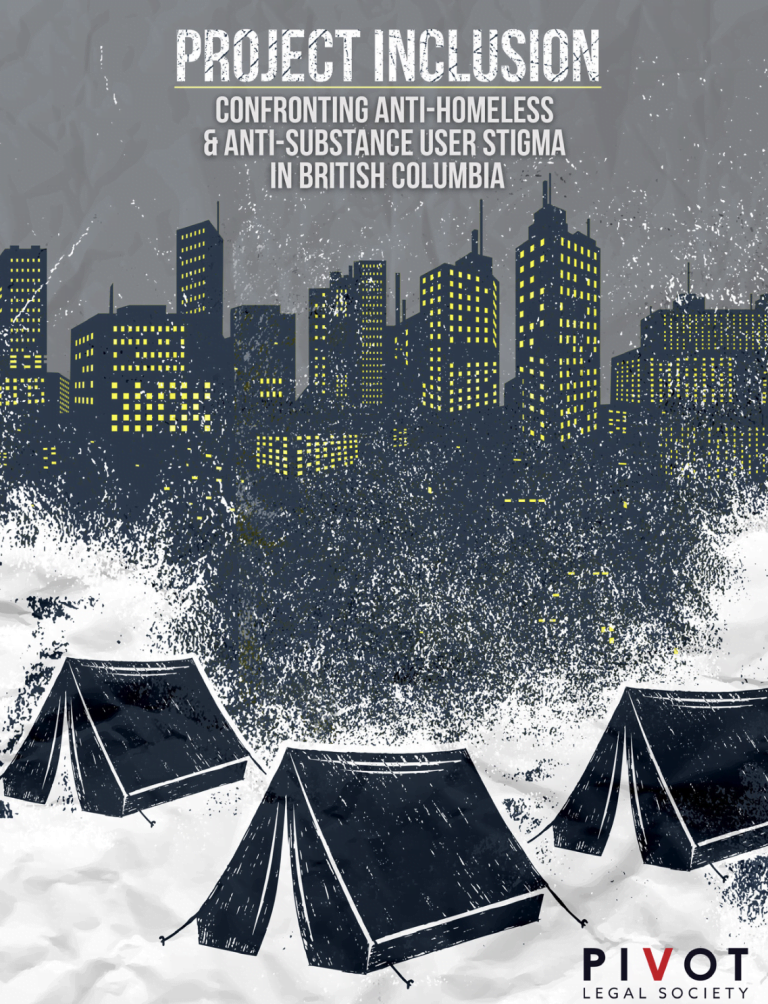6 search results
for
Income insecurity and benefits
Service gaps and barriers
The Ministry of Social Development and Poverty Reduction must make immediate changes to BC’s Income Assistance and Disability Assistance programs including:
Recommendation 25: Increasing income assistance rates to the Market Basket Measure and indexing them to inflation.-
Category and theme:
Audience:
Groups affected:
Location of recommendation:
Service gaps and barriers
The Ministry of Social Development and Poverty Reduction must make immediate changes to BC’s Income Assistance and Disability Assistance programs including:
Recommendation 26: Reviewing the processes that are currently in place for reporting “welfare fraud” to provide greater accountability and ensure that people receiving income assistance are not denied survival income without due process.-
Category and theme:
Audience:
Groups affected:
Location of recommendation:
Service gaps and barriers
The Ministry of Social Development and Poverty Reduction must make immediate changes to BC’s Income Assistance and Disability Assistance programs including:
Recommendation 27: Increasing access to in-person services for income assistance and disability applicants.-
Category and theme:
Audience:
Groups affected:
Location of recommendation:
Service gaps and barriers
The Ministry of Social Development and Poverty Reduction must make immediate changes to BC’s Income Assistance and Disability Assistance programs including:
Recommendation 28: Ensuring that people living with disabilities can access disability support by:- simplifying the application process to reduce wait times and lessen reliance on advocates;
- providing provincial guidelines for doctors/service providers on how and when to fill out disability forms; and
- ensuring that hospital social workers are resourced and directed to work with patients in need to apply for disability benefits.
-
Category and theme:
Audience:
Groups affected:
Location of recommendation:
Service gaps and barriers
Recommendation 29: The Legal Services Society of BC must provide legal support for appeals where a person has been denied income assistance or disability assistance.-
Category and theme:
Audience:
Groups affected:
Location of recommendation:
Operationalizing stigma-auditing
Recommendation 34: In its first year in operation, the BC Human Rights Commission should prioritize stigma-auditing areas of law and policy that most directly impact highly stigmatized populations, including, but not limited to:- public space governance; income assistance and disability policy;
- housing policy and residential tenancy law;
- child welfare law and policy;
- policing law and policy;
- health policy related to mental health and substance use; and
- privacy law as it relates to people who live in public space and people who are criminalized as a result of substance use.
-
Category and theme:
- Ableism ,
- Accessibility ,
- Accessible services and technology ,
- Ageism ,
- Classism ,
- Discrimination and hate ,
- Economic inequality ,
- Health ,
- Housing and homelessness ,
- Income insecurity and benefits ,
- Other ,
- Policing ,
- Policing and the criminal justice system ,
- Poverty ,
- Poverty and economic inequality ,
- Privacy ,
- Substance use ,
- Tenancy rights
Groups affected:
Location of recommendation:
